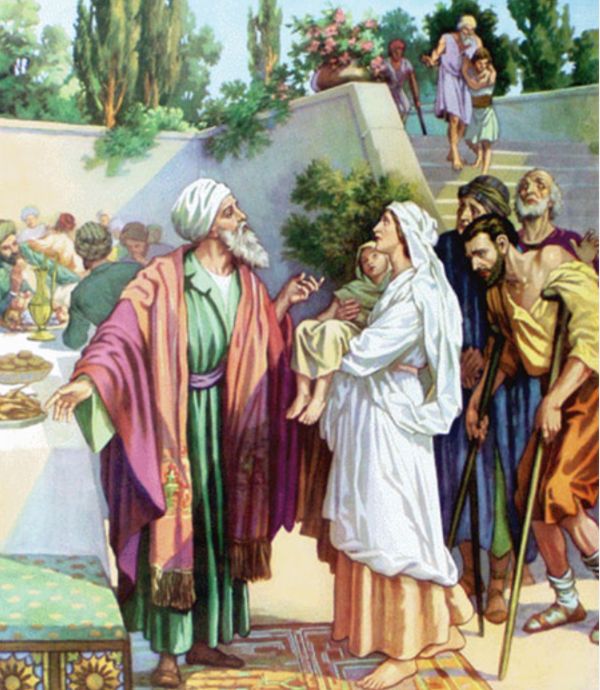Luke tells the parable of the great banquet, of those who, having been invited to a wedding, do not prove worthy of the opportunity they have received.
Hence the host's choice to welcome to dinner the poor, the crippled, the blind and the lame found at the crossroads.
Significantly, we find in the Sources that Francis, in love with Our Lady Poverty, insistently invited her to take food with the brothers [cf. Sacrum Commercium Beati Francisci cum Domina Paupertate].
The Saint had well understood that the Queen of the table was the one who shone in a special way in the derelict, in those who were forced to the margins of society, but sensitive to the invitation.
We read in fact:
"Then they led her to the place where the table was prepared. As she arrived, she looked around and, seeing nothing but three or four loaves of barley bread and bran placed on the grass, she was seized with great admiration" (FF 2020).
Then "he commanded them all to be together and spoke words of life to them, saying:
"Be blessed, my children, by the Lord God who created the heavens and the earth, for you have welcomed me into your home with such fullness of charity, that today, being with you, it seemed to me that I was in the paradise of the Lord [...].
Here is what I have sought so much, now I contemplate it [...] because on earth I have united myself with men who are for me the faithful image of Him who is my spouse in heaven.
May the Lord bless your courage and praise the work of your hands" (FF 2024).
Called and elected [in the company of Our Lady Poverty] to follow in the footsteps of the Son of God.
Clare herself, in her Spiritual Testament, a true Franciscan pearl, addresses her present and future daughters, inviting them to guard the priceless treasure of election.
We read:
"Among the other benefits we have received and daily receive from our Donor, the Father of Mercies, for which we are greatly obliged to render to Him glorious living acts of grace, great is that of our vocation. And the greater and more perfect it is, the more we are obliged to him.
Therefore the Apostle admonishes: 'Know your vocation well'" (FF 2823).
Again:
"The Son of God became our Way; and this by word and example our blessed father Francis, a true lover and imitator of Him, showed and taught us" (FF 2824).
At this point Clare recalls when the Saint, under divine inspiration, prophesied about them.
"Having climbed over the wall of the said church [...] he addressed some poor people who were standing nearby:
"Come and help me in this work of the monastery of St Damian, for soon women will come to inhabit it, and by the fame of the holiness of their lives glory will be rendered to our heavenly Father throughout his holy Church".
We can, therefore, admire in this fact the great goodness of God towards us: he has deigned, in his superabundant mercy and charity, to inspire such words to his Saint concerning our vocation and election" (FF 2827-2828).
«Go out early into the squares and alleys of the city and bring in the poor and crippled and blind and lame» (Lk 14:21b)
Tuesday 31st wk. in O.T. (Lk 14:15-24)












